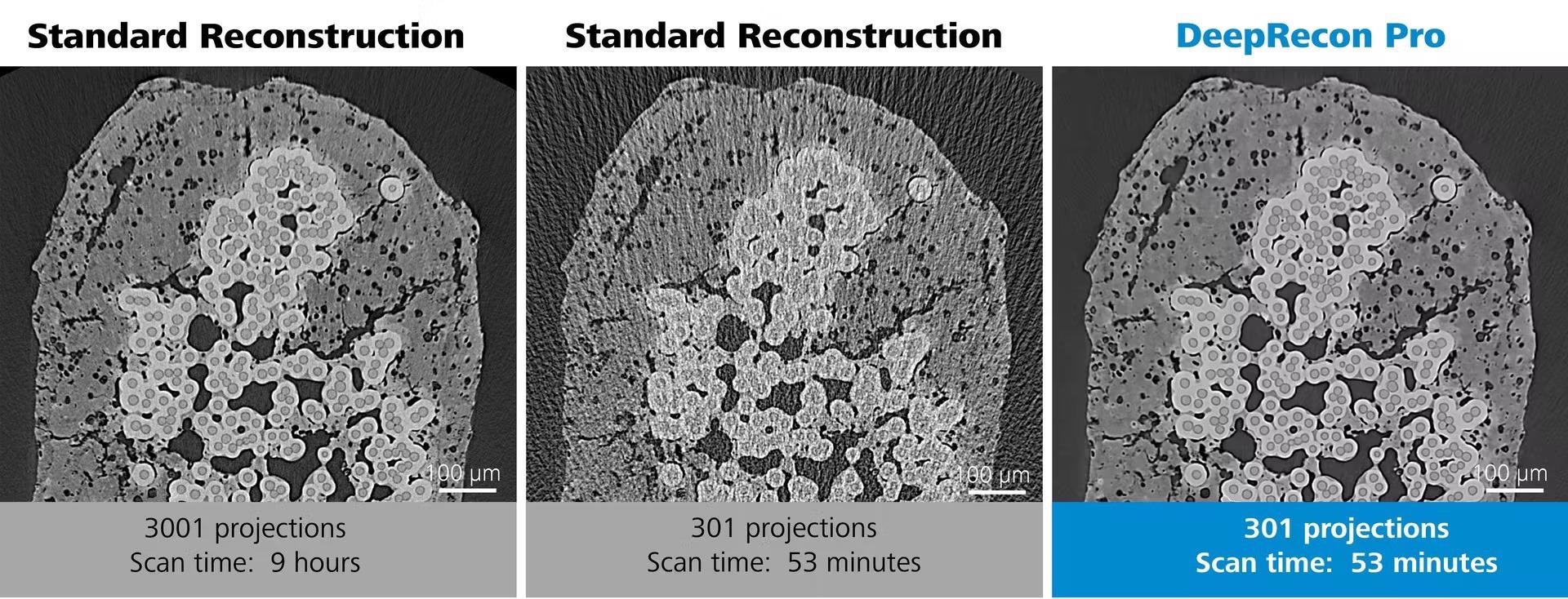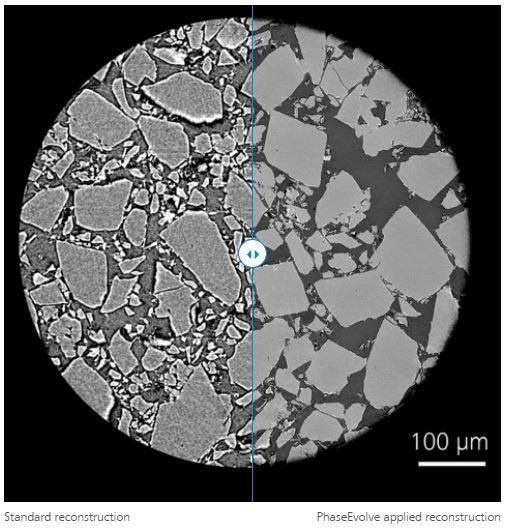ZEISS OptiRecon is considered an implementation of iterative reconstruction that significantly increases acquisition throughput, while simultaneously improving image quality.
- Users can obtain up to 4× quicker scan times or improved image quality with the corresponding throughput.
- Users can benefit from this economical solution by providing excellent interior tomography or throughput on a wide class of samples.

DeepRecon Pro used for throughput improvement for Ceramic Matrix Composite (CMC) sample, achieving 10× throughput improvement without sacrificing image quality. This would allow for much higher temporal resolution for in situ studies. Left: Standard reconstruction (FDK): Scan time 9 hrs (3001 projections). Center: Standard reconstruction (FDK): Scan time 53 mins (301 projections). Right: DeepRecon Pro: Scan time 53 mins (301 projections). Image Credit: Carl Zeiss Microscopy GmbH

Observe the performance of OptiRecon in a workflow performed on an electronics sample. Analyze integration issues in a smart phone camera lens, now 4× faster. Left: Standard reconstruction: Scan time 90 minutes (1200 projections). Center: Standard reconstruction: Scan time 22 minutes (300 projections). Right: OptiRecon: Scan time 22 minutes (300 projections). Image Credit: Carl Zeiss Microscopy GmbH

The image on the top shows an application of PhaseEvolve to a pharmaceutical powder sample. High resolution or low kV imaging can result in inherent material contrast being obscured by phase contrast artifacts. PhaseEvolve effectively removes phase fringes to enhance image contrast and improve segmentation results. Image Credit: Carl Zeiss Microscopy GmbH